Products are chosen independently by our editors. Purchases made through our links may earn us a commission.
If video games aren’t already a part of your child’s life, it’s really only a matter of time before they start begging to play "Minecraft" with their friends. According to the American Psychological Association, more than 90% of U.S. children play some kind of video games, and when considering only adolescents ages 12-17, that figure rises to 97%.
While we are all trying to cut ourselves some slack as far as screen time is concerned these days, the question of whether it’s OK to throw your kid on a video game for an hour is still tricky for a lot of parents.
Between and claims of video game addiction in children, and the pervasive concern of violence within a game, parents may be tempted to put an all-out ban on gaming in the home.
Warren Buckleitner, an educational psychologist and assistant professor of interactive multimedia at The College of New Jersey says that, in reality, video games can actually be academically and socially beneficial.
“Of course supervision and moderation are important, but there are also really important skills that can be built through playing video games,” he says, noting that gaming can help hone advanced planning, organizing, executive functioning, and attention-building.
If you are trying to decide if you’re ready to allow video games into your child’s life but are scared of encouraging a gaming zombie, here are some expert-recommended games that are fun, engaging, and challenging.
1. "Minecraft"

This wildly popular game is actually one of the most educational around.
Best for ages: 7 and up Teaches: Mathematics, measurement, counting, quantities, spatial relations
If you haven’t heard of "Minecraft" yet, mark our words, your kid is going to ask to play it any day now. But according to every expert we spoke to, this is actually one of their favorite games and highly recommended as an engaging and subversively educational game.
Buckleitner says he likes the social aspect to it—you can play with friends or without—and also cites the logical problem-solving as excellent learning opportunities for kids. “There’s a lot of learning about spatial relations, units of measurements, counting, and quantities—there’s a lot of learning through the lens of mathematics,” he says.
And since the game is highly visual, it builds mathematical learning in a very tangible way for kids. He also recommends this game for the creativity it can build in kids: “I like any game where kids can build something and save their work. It makes them feel like they can walk away with something they own and that’s theirs, which is great for self-esteem building. And when they walk away with this and want to show it to you, their parents, it becomes an excellent vehicle for social emotional connection.”
- Get "Minecraft" for PS3 at Amazon for $28.99
- Get "Minecraft" for Nintendo Switch at Amazon for $27.99
2. "Animal Crossing: New Horizons"
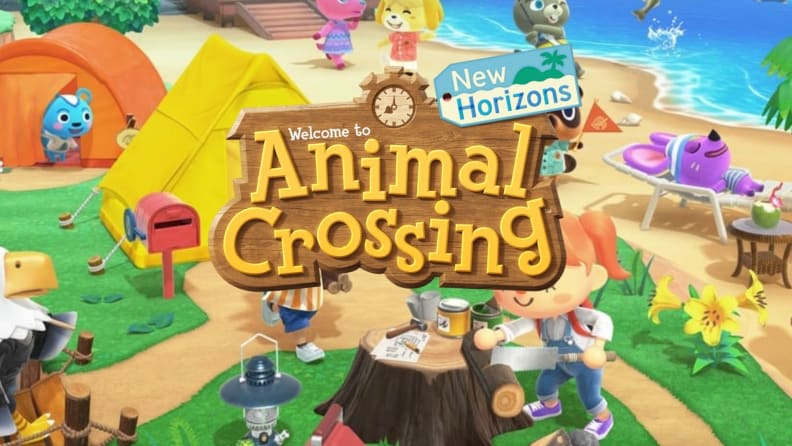
This game enhances kids' creativity, while also helping them with discovery and problem-solving skills
Best for ages: 5 and up Teaches: Currency, problem-solving, planning, spatial-relations, creativity
Buckleitner likes that this game can be highly social while also allowing for kids to play independently and, like "Minecraft," build something they can have ownership of. Players have the opportunity to interact with friends far away (particularly nice during a time when real life social interaction is at a minimum) or build on their own, allowing for a lot of creativity as well as self-esteem building.
“When kids look at something they’ve built on their own and feel pride over that, there are enormous social-emotional benefits to that," he says.
He also cites the logical problem solving that happens particularly within the game store, which is used to help build out your island. Within that game component are countless opportunities for kids to learn planning and currency skills. He says, “You can almost visualize a child finding a real passion for business and planning through this game.”
He also says that spatial relation-learning is especially prevalent within "Animal Crossing," and with the puzzles and maps within the game, there are opportunities to learn math and quantification. Marissa DiBartolo, editor-in-chief of The Toy Insider also recommends this game.
“It’s an incredible game that enhances kids' creativity, while also helping them with discovery and problem-solving skills,” she says. She also likes that this game utilizes written on-screen instructions, prompting kids to practice their reading and comprehension skills as well as sequencing and direction-following.
Get "Animal Crossing: New Horizons" for Nintendo Switch at Amazon for $59.99
3. "Paper Mario: The Origami King"
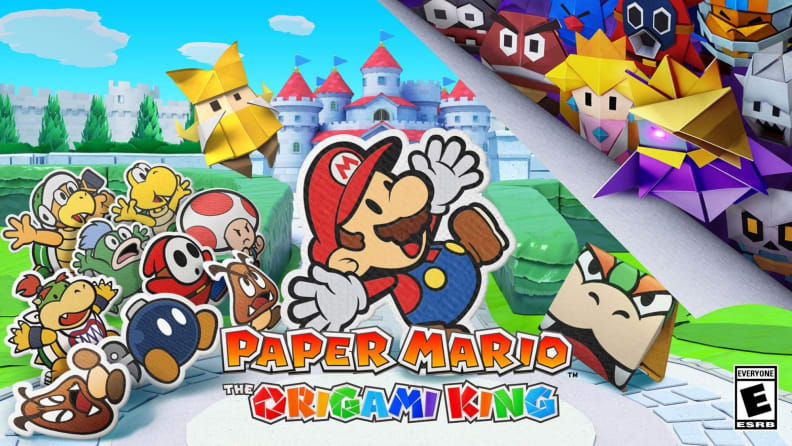
Paper Mario games teach math and planning skills.
Best for ages: 8 and older Teaches: Attention to detail, concentration, problem-solving
Both Bartolo and Buckleitner recommend the Mario games, including "Paper Mario: The Origami King," a 2020 addition to the Super Mario world. Bartolo says she likes that this game challenges kids to problem solve and think creatively. Kids must wander around a world made completely out of paper to find and rescue all of the hidden Toads, use confetti to repair damaged pieces of the world, and use strategy to take on the Goombas.
“This game requires lots of attention to detail, challenging kids to find what's different or missing, figure out a way to fix it with the tools they have, and leave no stone, or in this case, pile of leaves, left unturned,” she says.
Get "Paper Mario: The Origami King" for Nintendo Switch at Amazon for $58
4. "Super Mario Party"
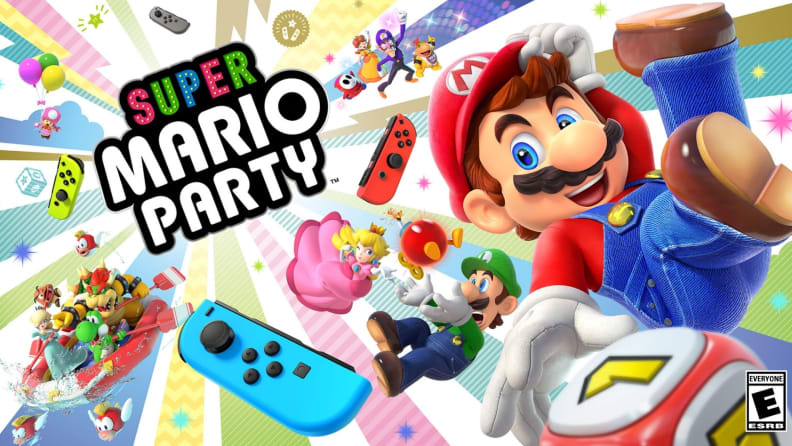
An interactive game to get the party started!
Best for ages: 4 and older Teaches: Social emotional skills, collaboration, movement
Buckleitner likes this Super Mario game because it’s highly interactive. “The whole family can play,” he says, noting that part of the fear many parents have about video games is based on the unknown and the idea that their child is locking themselves away in world that they aren’t a part of. This game encourages social interaction, collaboration, and a whole lot of movement.
“It’s competitive, but it’s more about having fun together and interacting in a really joyful way—and really any skill level can play, so it’s an excellent choice to get siblings to interact and enjoy each other even if they are generally at different skill levels,” says Buckleitner.
Get "Super Mario Party" for Nintendo Switch at Amazon for $49.94
5. "Lego Duplo World"
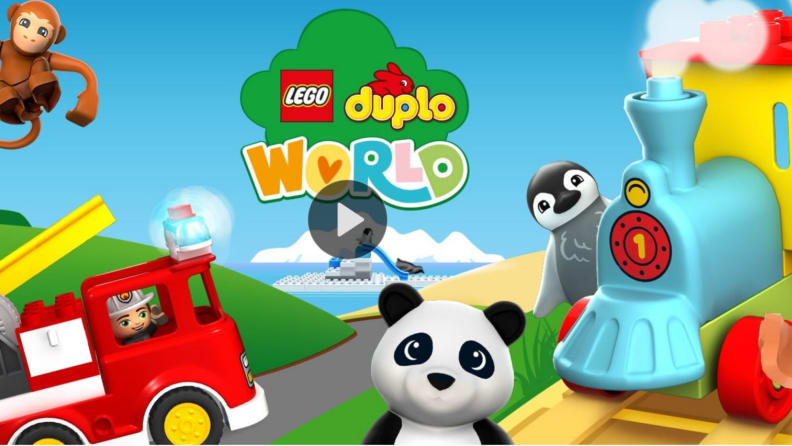
Even tiny gamers can play this one.
Best for: Ages 2 to 6 Teaches: Logic, problem-solving, spatial relations
Buckleitner recommends all of the Lego titles from Warner Bros.: “Again, the building, math, problem-solving, and logic are terrific in these games.” The Duplo versions of these games are also a lot of fun and are a good foundation for early learners.
6. "Lego Worlds"

No little pieces will get lost in this video version of the popular kids' toy.
Best for: Ages 2 to 6 Teaches: Logic, problem-solving, spatial relations
Like "Lego Duplo World," "Lego Worlds" teach math, problem-solving, and logic at a higher level—without kids even realizing they are learning. Buckleitner says that he likes these games because they require careful observation and spatial problem-solving, and they also allow for creative free building.
The "Lego Worlds" games are sandbox adventures and that gives players the chance to create and interact with various Lego settings while building and editing entire worlds in any way their creativity takes them. Players can also work with different characters to solve short mini-quests, giving them a different layer of problem-solving challenges that Buckleitner likes.
- Get "Lego Worlds" for Xbox at Amazon for $23.50
- Get "Lego Worlds" for Xbox at Amazon for $24.97
- Get "Lego Worlds" for Nintendo Switch at Amazon for $39.99
7. "CodeSpark Academy"
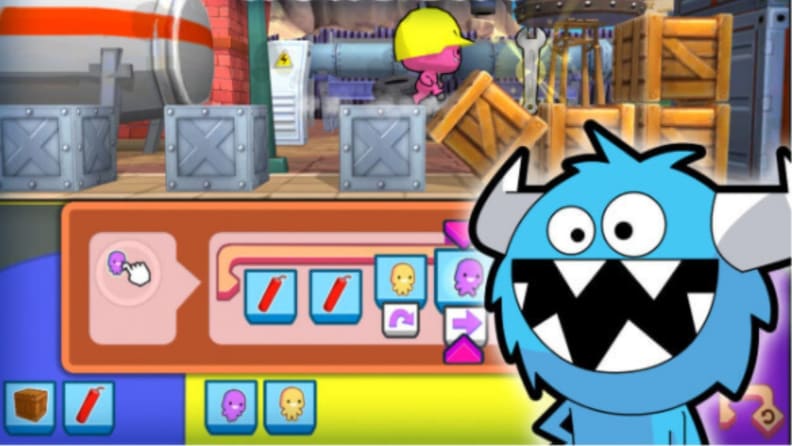
Coding for kids as young as kindergarten!
Best for: Ages 5 and up Teaches: Coding, math, innovation, creative problem-solving, strategy, logic
This Kids At Play Interactive award-winning game is Ideal for future programmers. We love that this is an increasingly challenging drag-and-drop coding puzzle that introduces kids to the logic of programming using visual blocks of code.
The better a child does, the greater the challenge, which allows for kids to build on what they know. And parents can confidently let kids 5 and older use on their own: The interface is word-free and privacy of young users is protected. Users can share creations with each other within the CodeSpark community but text-based comments are forbidden, instead users have a large selection of fun emojis that can be used to “comment” on favorite creations.
- Get the "CodeSpark Academy" app for iOS for free
- Get the "CodeSpark Academy" app for Android for free
- Get the "CodeSpark Academy" app for Kindle for free
8. "Pokémon Go"

Social and active, it's a completely new spin on video games.
Best for: Ages 7 and up Teaches: Geography, problem-solving, logic, maps, reading, classification, local history, gross motor skills
"Pokémon Go" encourages users to spot and capture Pokémon in their own communities.
“It’s the game that breaks every stereotype about gaming,” says Buckleitner, noting that he loves that it gets kids out, moving around, navigating, and using gross motor skills to find and capture the Pokémon. “It can be highly interactive, and there’s also local knowledge to be picked up—facts about town and monuments, which is great.”
9. "Stardew Valley"
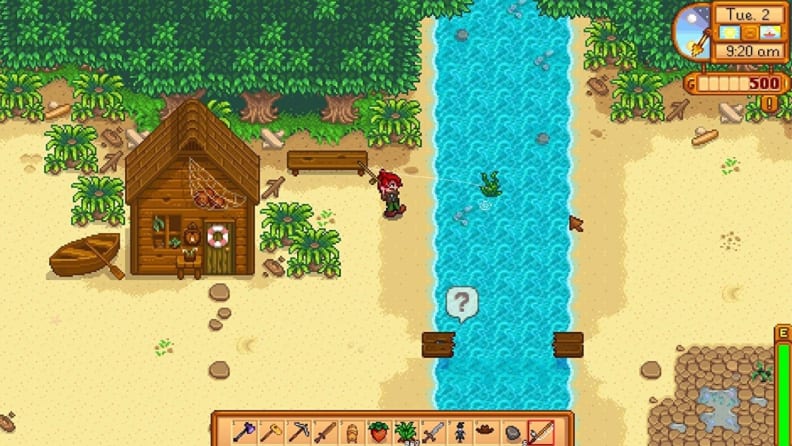
This game is a slow paced, calming game that is a practice in mindfulness.
Best for: Ages 10 and up Teaches: Currency, planning, problem-solving
With so many video games that elicit the feeling of being stuck in flashy Vega slot machine, demanding all of your attention and credit card details, the enjoyment of this game is that it evokes a sense of calm and stillness. "It's a bit methodical and it's a little bit different than what you normally see in video games," says Buckleitner.
Many reviews of this game cite it as a practice in mindfulness. While there are definitely engaging challenges to be had--like fishing, mining, spelunking, foraging, cooking, luaus, haunted mazes, and arcade games--the main draw of the game is caring for your farm and feeling a part of a place that's meant to feel calm but alive, growing, and ever-changing.


